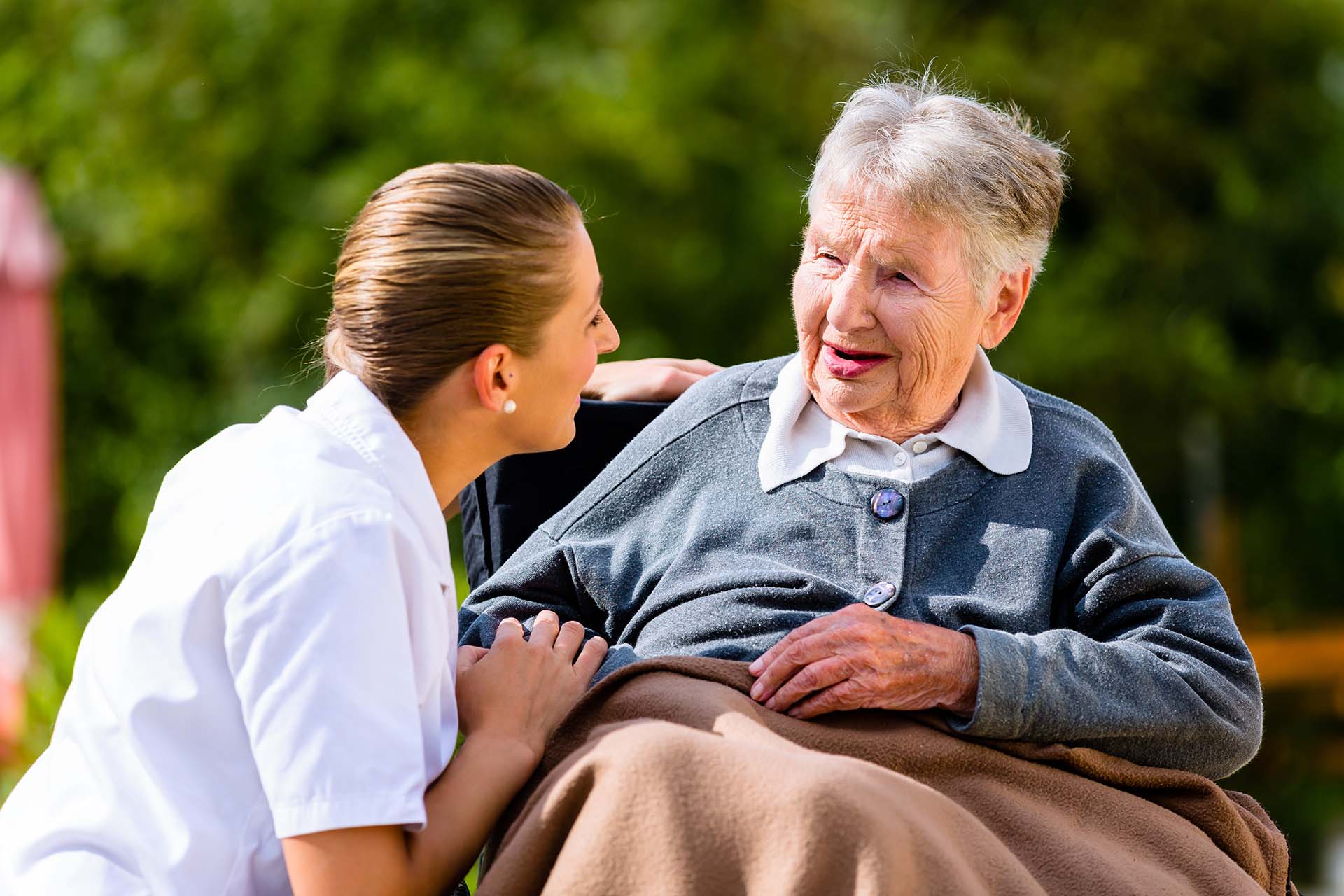Introduction: The Evolving Landscape of Personal Care in Laois
Laois, a vibrant county in Ireland, is witnessing a growing demand for personal care services driven by demographic shifts and evolving societal needs. As the population ages and the prevalence of chronic conditions rises, personal care services are becoming increasingly critical. This article explores the multifaceted world of personal care services in Laois, highlighting the types of services available, their transformative impact, and the evolving role of caregivers in enhancing the lives of individuals.
Personal Care Services: An Overview
Defining Personal Care Services
Personal care services encompass a broad range of non-medical assistance aimed at helping individuals with daily living activities. These services are designed to support those who face challenges in performing routine tasks due to age, illness, or disability.
Core Components of Personal Care Services
- Personal Hygiene: Assistance with bathing, grooming, and dressing.
- Mobility Support: Help with movement, transfers, and using mobility aids.
- Medication Management: Organizing and reminding clients about medication schedules.
- Meal Preparation: Planning, cooking, and providing feeding assistance.
- Companionship: Offering social interaction and emotional support.
Why Laois Needs Robust Personal Care Services
The demographic trends in Laois underscore the need for comprehensive personal care services. With an aging population and a rising number of individuals with chronic conditions, personal care services are essential for maintaining the quality of life and independence.
Demographic Insights
- Aging Population: A significant percentage of Laois’s residents are elderly, requiring varying levels of assistance.
- Chronic Conditions: Increasing prevalence of conditions like arthritis, diabetes, and mobility impairments.
Societal Shifts
- Preference for Aging in Place: Many individuals prefer to stay in their own homes rather than moving to institutional settings.
- Family Dynamics: Changing family structures mean that traditional caregiving roles are evolving, creating a greater need for professional support.
Types of Personal Care Services in Laois
In-Home Personal Care
In-home personal care services provide support in the familiar environment of an individual’s home, allowing them to maintain their independence and comfort.
Key Aspects of In-Home Care
- Customized Care Plans: Services are tailored to meet the specific needs of the individual.
- Flexibility: Care can range from a few hours a week to 24/7 support.
- Comfort and Familiarity: Individuals can remain in their own homes, which is often associated with better emotional well-being.
Typical Services Offered
- Personal Hygiene: Help with bathing, grooming, and dressing.
- Mobility Assistance: Support with transfers, walking, and using mobility aids.
- Meal Preparation: Assistance with planning, cooking, and feeding.
- Medication Management: Organizing medications and providing reminders.
Day Care Services
Day care services offer a structured environment where individuals can spend the day engaging in various activities while receiving necessary care.
Benefits of Day Care Services
- Social Interaction: Opportunities for social engagement and forming friendships.
- Structured Activities: Participation in activities that promote physical and cognitive well-being.
- Respite for Family Caregivers: Allowing family members a break from caregiving duties.
Typical Offerings
- Activities and Programs: Arts and crafts, music therapy, physical exercises, and games.
- Meals and Snacks: Nutritious meals and snacks provided during the day.
- Health Monitoring: Regular health check-ups and monitoring.
Residential Care Facilities
Residential care facilities provide a more comprehensive level of support for individuals who require continuous care.
Core Features
- 24/7 Supervision: Continuous care and monitoring by professional staff.
- Safe and Adapted Environment: Facilities designed to accommodate various physical and cognitive needs.
- Medical and Therapeutic Services: Access to medical care, therapy, and rehabilitation services.
Resident Services
- Daily Living Support: Assistance with bathing, dressing, eating, and mobility.
- Healthcare Access: Regular medical check-ups and access to healthcare professionals.
- Recreational Activities: Programs designed to promote social interaction and mental engagement.
Specialized Personal Care Services
Certain personal care services are specialized to meet the needs of individuals with specific conditions or requirements.
Alzheimer’s and Dementia Care
- Cognitive Support: Activities tailored to enhance cognitive function and memory.
- Safety Measures: Supervision and security measures to prevent wandering and ensure safety.
- Family Support: Providing resources and support for family members.
Palliative and End-of-Life Care
- Comfort Focus: Managing pain and symptoms to ensure the individual’s comfort.
- Emotional and Psychological Support: Providing companionship and support to the individual and their family during end-of-life stages.
- Holistic Approach: Addressing physical, emotional, and spiritual needs.
Post-Surgical and Recovery Care
- Wound Care: Assistance with wound management and healing.
- Rehabilitation: Support with exercises and activities to promote recovery and regain function.
- Monitoring: Regular check-ups to monitor progress and address complications.
The Transformative Impact of Personal Care Services
Enhancing Quality of Life
Personal care services have a profound impact on the quality of life for individuals who require assistance, providing them with the support they need to live with dignity and comfort.
Independence and Autonomy
- Empowerment: Individuals are enabled to perform daily tasks with assistance, maintaining control over their lives.
- Reduced Dependency: Reduces the reliance on family members for daily care, promoting independence.
Health and Well-Being
- Improved Hygiene: Regular assistance with personal hygiene reduces the risk of infections and skin issues.
- Balanced Nutrition: Ensures that individuals receive nutritious meals tailored to their dietary needs.
- Medication Adherence: Helps individuals manage their medications, reducing the risk of complications.
Alleviating Family Burdens
Personal care services provide essential relief to families who might otherwise be overwhelmed by caregiving responsibilities.
Respite Care
- Temporary Relief: Allows family caregivers to take breaks, reducing stress and preventing burnout.
- Improved Family Dynamics: Enables family members to focus on their relationships rather than solely on caregiving duties.
Peace of Mind
- Professional Support: Families can rest assured knowing that their loved ones are receiving professional and compassionate care.
- Ongoing Communication: Regular updates from caregivers ensure that families are informed about the well-being of their loved ones.
Fostering Social Connections
Isolation and loneliness are significant concerns for many individuals requiring personal care. Personal care services address these issues by providing opportunities for social engagement and interaction.
Companionship
- Regular Interaction: Caregivers provide social interaction and companionship, reducing feelings of loneliness.
- Engaging Activities: Participation in social activities and hobbies fosters a sense of community and belonging.
Community Integration
- Day Programs: Opportunities to participate in community activities and programs.
- Social Events: Organizing and attending social events helps individuals stay connected to their community.
Challenges and Innovations in Personal Care Services
Addressing the Challenges
While personal care services offer numerous benefits, they also face certain challenges that need to be addressed to ensure effective care delivery.
Workforce Shortages
- Recruitment and Retention: Attracting and retaining qualified caregivers remains a challenge in Laois and beyond.
- Training and Development: Ensuring that caregivers receive adequate training and professional development opportunities.
Accessibility and Affordability
- Cost of Services: The cost of personal care services can be a barrier for many individuals and families.
- Access to Services: Ensuring that services are accessible to all who need them, regardless of their financial situation.
Innovations in Personal Care
Innovations in personal care are transforming the way services are delivered, making them more efficient and responsive to the needs of individuals.
Technology Integration
- Telehealth: Utilizing telehealth for remote consultations and monitoring.
- Assistive Devices: Incorporating technology such as mobility aids and smart home devices to enhance care.
Person-Centered Care
- Customized Care Plans: Developing personalized care plans that reflect the individual’s preferences and needs.
- Holistic Approach: Addressing the physical, emotional, and social aspects of care.
Community-Based Programs
- Integrated Services: Developing community-based programs that integrate personal care with social services and healthcare.
- Collaborative Models: Fostering collaboration between different service providers to ensure comprehensive care.
The Future of Personal Care Services in Laois
h3: Trends Shaping the Future
Several trends are shaping the future of personal care services in Laois, reflecting the evolving needs and expectations of the population.
Aging Population
- Increased Demand: The aging population will continue to drive demand for personal care services.
- Diverse Needs: The growing diversity of needs among the elderly population will require more specialized and personalized care.
Emphasis on Home-Based Care
- Preference for Home Care: There is a growing preference for receiving care at home rather than in institutional settings.
- Enhanced Home Care Models: Developing enhanced home care models that provide comprehensive support in a home environment.
Strategies for Improvement
To address current challenges and meet future demands, several strategies are being implemented to improve personal care services in

